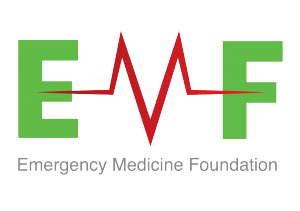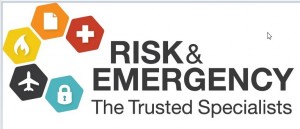|
29 November 2017, Wednesday
|
| TIME |
AGENDA |
|
|
Day 1 – 29 November 2017
The Insights of Disaster Risk Reduction, Preparedness, and Prevention
The stunning toll of natural disasters on lives, businesses, and the economy has sparked interest in finding ways to reduce and manage disaster risks in a sustainable manner. Australia has experienced a wide range of disaster events that has caused great hardship to individuals and communities. In 2009, the catastrophic 2009 “Black Saturday” fire led to 173 deaths and another 414 people injured, with economic loss amounting to more than $4.4 billion. As recent as March 2017, Cyclone Debbie wrecked many homes, causing damage to 63,000 properties across Queensland. The resulting costs were estimated to be more than $2 billion, a damage bill similar to that of Cyclone Oswald in 2013. The extensive damage to businesses and communities alike serves as a stark reminder for a cohesive disaster management and recovery plan.
In the following sessions, we will provide an overview of the likely types of disasters that may occur, the myriad of actors that are involved in disaster management, and the diverse methodologies and practical frameworks from which pre-disaster preparatory activities may be approached. The sessions will cover the key ingredients of post-disaster resilience efforts and ways to promote risk-reduction and risk-awareness amongst communities in Australia.
|
|
| 9:00am |
Forum Introduction by Chairperson
Highlights on Forum Day 1 Key Sessions |
|
 |
Jason T. Cameron
Principal Advisor & Director of Operations
Phoenix Resilience |
 |
|
Jason has over 20 years of crisis and disaster management. Working at all levels of government and commercially, he has managed and supported a range of events including major flood, fire, pandemic, oil spill, severe storm, major civic/international events, political unrest, and counter-terrorism. In the process, assisting a wide range of communities found in large metropolitan cities through to small townships and isolated regions. Internationally, he has led commercial, military and para-military operations in security, risk, and emergency management in Asia, Europe, and the Middle East.
As the Principal Advisor and Director of Operations in Phoenix Resilience, Jason specializes in Crisis and Emergency Management, Security Operations, Capability Development, Business Continuity and Major event planning. He is the recipient of a number of military decorations and awards, military and policing commendations and, more recently, Lord Mayor of Brisbane Awards for excellence and outstanding performance and achievements beyond the call of duty.
Jason is a Fellow of the Centre for Emergency and Disaster Management, Queensland University of Technology (QUT), Facilitator/Instructor in Emergency Management and Business Continuity at the National Centre for Emergency Management Studies (NCEMS) and a qualified international assessor for the Emergency Management Accreditation Program (EMAP) in the United States. |
|
| 9:10am |
Guest Keynote Address: A Pre-Disaster Framework for Improved Post-Disaster Resilience
- An overview of recent natural catastrophes including bushfire, floods, severe storms, and landslides
- Find the root causes of disaster-related issues and challenges to enable the processes that deliver sustained behavioral change and recovery
- Recognize the global strategy used to adopt a holistic resilience-based approach towards disaster management, and coordinate preparedness planning phase
- What makes up community resilience – Identifying and strengthening practices & policies that promote community flexibility and ingenuity
|
|
 |
A/Professor Brett Aimers CStJ
National Director, Australian Institute of Emergency Services
Former Principal Advisor, Victorian Government |
|
|
Brett is an Adjunct Associate Professor at James Cook University where he provides expert advice and education on disaster management systems and concepts.Through James Cook University, Brett was recently involved in a project, led by the World Health Organisation, exploring global best practice associated with public health Emergency Operations Centres.
Through James Cook University, Brett was recently involved in a project, led by the World Health Organisation, exploring global best practice associated with public health Emergency Operations Centres.
He has an extensive disaster management background coupled with experience at the State and National level which includes performing senior operational and leadership roles during the H1N1 pandemic and the 2011 Queensland floods. Brett also performed a significant role throughout the Victorian Black Saturday bushfires in Australia and was awarded the National Emergency Medal for his efforts in helping to lead the whole-of-health response.
Professor Aimers is the immediate past Deputy Chief Commissioner for St John Ambulance Australia; whilst in this significant national leadership role, he was responsible for clinical governance and the provision of influential and expert advice in relation to disaster management and training and development.
In 2016, for his sustained service to St John Ambulance Australia, Brett was recently promoted to the rank of Commander within the Most Venerable Order of the Hospital of Saint John of Jerusalem.
Brett is also a National Director for the Australian Institute of Emergency Services. |
|
| 9:55am |
Case Study: Cities and Urban Environments in Disaster/Disruption Management
- Interplay between social, economic and environmental dimensions of a resilient city
- The role of technology in shaping city resilience
- Understand emerging drivers shaping resilient strategy (collaboration, innovation, disruption, agility
|
|
 |
Jelenko Dragisic
General Manager, Greening Australia
Director – Strategy, Operation, Partnership, Global Resilience Collaborative |
|
|
Jelenko has a strong passion and longstanding interest in resilience to disruptions that occur in many forms. He believes that strategic collaboration is one of the major features of resilient cities, communities, and systems and that integration of social, economic, technological and environmental factors into resilience planning is in equal measure challenging, rewarding and necessary for truly resilient cities. While CEO of Volunteering Qld, Jelenko designed and implemented Step Up, one of the largest disaster resilience programs in Australia. This award-winning program is based on large-scale collaboration, bringing together various levels of government, community organizations, universities and the corporate sector. A significant part of the program was dedicated to Australia’s first resilience building initiative for the business sector.
As General Manager, Greening Australia, Queensland, Jelenko currently manages a large-scale collaboration, focusing on building environmental and social resilience in the Great Barrier Reef catchment. He is the founder/curator of ResilienceReporter.com, an aggregate website dedicated to all things resilience, and has also authored a book on strategic collaboration (The Collaboration Instinct), and a monograph which reflects on the development of disaster resilience following North Queensland’s Cyclone Larry in 2006 (When We Stopped Eating Bananas). Jelenko currently serves as a member of the Inclusive Brisbane Board, and the City Security and Resilience Network Australia (CSARN).
|
|
| Morning Refreshments & Networking Session |
11:00am
|
Case Study: The Resilience of the Electric Power Delivery System in Response to Bushfires, Cyclones, and Floods
- Discuss the physical vulnerabilities of the grid
- Understand the ways communities respond to widespread outages and methods of adapting grids accordingly to minimize the impact
- Gain insights into community resilience and the provision of critical services with future technologies that could enhance the resilience of the electric power delivery system
|
|
 |
Ian McLeod
Director Smart Energy & Global Head of Smart Cites COE
Enzen |
|
|
- Director Smart Energy & Global Head of Smart Cities
- COE for Enzen, Global Ambassador Edison Electric Institute
- Chairman Of Queensland Futures Institute Energy Committee
- Member of 2026 Agenda Leadership Group (spatial industry) and Advisory Board member for Smart Wires (US), Energy Thought Summit (US), James Cook University, and Monash Energy Materials and Systems Institute
- Former CEO of Ergon Energy with over 30 years industry experience
- Associated Awards
- 2015 Edison Electric Institute International Innovation Award (spatial)
- Energy Supply Association Innovation Award (spatial)
- EPRI Technology Transfer Award (smart grid)
- Engineers Australia award for Innovation, Research, and Development (electrical storage)
- 2015 Climate Alliance Business Leadership Awards for Business Innovator of the Year
|
|
| 11:45am |
Managing Government Information Requirements During Disaster Response
- Community expectations of government leadership during a Disaster
- Bias for accuracy over speed of information
- Running Interference – limiting impact of information requirements on Disaster responders
- The reality of back channel communications
- Strategies to balance information requirements of government and the community and the Disaster response
|
|
 |
Dr Mark Harvey
Detective Inspector
Queensland Police Service
|
 |
|
Dr Mark Harvey is an Organisational Leader and Management Consultant with internationally recognised expertise in the creation and review of ethics, integrity and corporate governance programs for organisations across the globe. Mark has delivered strategic and operational outcomes for many organisations in the fields of business development, innovation and value for money reviews including IT solutions. Mark is a renowned speaker and adult educator, known for skilling leaders to actively promote ethics and integrity within their organisations. Mark lectures on the QUT Executive MBA Program regarding corporate ethics and he is a Detective Inspector in a law enforcement agency where he leads teams undertaking internal investigations regarding suspected misconduct and criminal activity. Mark has over twenty-five years leadership and front-line experience in Disaster & Crisis Management, Emergency Response, Legislation Development and Operational Command of law enforcement agency specialist response teams. In addition, Mark recently designed and led change programs which have assisted large government agencies to adapt to and operate within highly complex dynamic environments. |
|
 |
Inspector John Bosnjak
Disaster Management Coordinator
Queensland Police Service |
|
| Networking Luncheon |
| 1:30pm |
Impacts on Children’s Networks Following a Natural Disaster
- Loss of access to friends, both obvious and subtle
- Family commitments to damaged home/business, preventing children from spending time with their peers
- Loss of local sporting facilities during disaster impacts all children, irrespective of whether their home was damaged
- Children lose access to their sporting networks which can be fundamental to helping all children better manage following a disaster, this includes children whose families were not directly impacted by the disaster but are part of the broader community that was affected
- Through sport, children have the opportunity to forget about the stressors around them and to relax, thereby impacting their mental health, as well as to do something “normal” in time of abnormality
- The longer facilities remain inactive, the greater the risk that these networks will dissolve
|
|
 |
Tegwen Howell
Manager, Research Support Network
Emergency Medicine Foundation |
 |
|
Tegwen commenced as Manager, Research Support Network (RSN), Emergency Medicine Foundation (EMF), in July 2014 and is responsible for a team whose role is to expand emergency medicine research.
Tegwen has over twenty years health research experience in Australia and Canada. She has worked across the health spectrum, including public health, health economics, health policy, health technology assessment and clinical research. She also has experience in disaster management and recovery in Australia, Canada, and New Zealand, including the short and long-term mental health impact of natural disasters.
Through her experiences, Tegwen has fostered relations with people involved in all aspects of health research as well as establishing connections across disaster management and planning in Australia and overseas. She is passionate about the long-term effects of natural disasters, particularly on children and adolescents.
|
|
| 2:00pm |
The Essentials of Emergency Response Leadership – The Sharp End
- True Leadership in the Trenches
- Perfect Preparation and Provision – PPP
- Incident Preparation – Understanding & Knowing
|
|
 |
Dean Hawkins
Managing Director
Risk & Emergency |
 |
|
Dean is an Industry Innovator, Influencer and Positive Disruptor – with unique solutions and prospective. Over 32 years of experience in all aspects of the industry via risk assessment, safety management systems, airport operations, fire emergency response and preparedness and airport operations and systems. Through applied experience, he also specializes in developing and applying solutions to training, personnel development, and processes of an organization’s staff and assets in preparation to standards.
His company, Risk&Emergency.com, has been supporting and preparing worldwide Mine Emergency Response Teams for Mine ERT competitions, audits of fire safety and Fire Providers for different industries and compliance all across the globe, assisted governments in policy developments, developed ERT training manuals, designed and implemented documentation for various clients and much more.
Some of Dean’s wide experiences also include:
- Drone operator training in emergency services
- Counseling and guide mining the resource industry and businesses in appreciating, recognizing and apportioning commercial prospects and placement with indigenous people
- ERT & Fire Service Training Centre Design and Construction
- Combatant Team Leadership Programs
- Rail Grinding Operations Risk Assessment
- Dean has conducted hundreds of workshops and training courses throughout Australia and the world
- Instigator and innovator in providing worldwide fire and rescue eLearning
Dean was the inventor, originator, and instigator for the very first Australian Model `best practice, perfect fit` for LNG Coal Seam Gas response capability |
|
| 2:45pm |
Building the Case for IT Resilience & Business Continuity Planning (BCP), with Natural Catastrophes
- What does Fire, Cyclones, Floods and Earthquakes mean for IT Resilience?
- Exploring Preparedness & Risk Reduction to address large-scale Disruption risks
- Challenges and opportunities in embedding IT Resilience into the organizational culture and practices
- Human factors for consideration with IT Resilience
- Getting CxOs to recognize the value of building a strategy for IT Resilience
|
|
 |
Pradeep Navalkar
Principal Advisor ICT Service Continuity Management
Ministry of Business, Innovation and Employment New Zealand |
 |
|
Pradeep Navalkar is the Principal Advisor ICT Service Continuity Management for Ministry of Business, Innovation & Employment, in Wellington, New Zealand. He has 20+ years of experience in a variety of roles in both public and private sectors, including risk management, assurance, ICT and Information management, consulting, organizational resilience, and people leadership.
His present role is about improving resilience and recovery capability of organization’s IT Services. He takes a continuous improvement approach to the IT Service Continuity / Disaster Recovery planning and execution, while at the same time taking a pragmatic view of risks. In one of his previous roles, Pradeep has set up and managed an IT Recovery Facility for 24 x 7 electricity market information systems. Since then, he has provided assurance and advice to Business Continuity Management and IT Disaster Recovery planning and operations.
As part of his present role, Pradeep has set up a community of practice forum in the NZ Government Sector to share and improve the capability of IT Disaster Recovery.
Pradeep is a Bachelor of Computer Science Engineering and holds CISSP, CISM, CISA and ITIL qualifications. He began his career as an IT professional and has been a member of ISACA, IIA, itSMF, IITP, and RiskNZ. |
|
| Afternoon Refreshments & Networking Session |
| 3:45pm |
Maintaining the Human Resource Capacity During Long Durations of Emergency Response in Extreme Environments
- Defining the risks to workers in extreme environments
- The aging first responder – A new challenge for supporting and maintaining the emergency response
- Proactive strategies to mitigate the risks of working in extreme environments
|
|
 |
Dr. Anthony Walker PhD
Adjunct Assistant Professor
Bond University
|
|
|
Dr Anthony Walker (B.Ed, M.Ed, B.Sports Studies (Biomechanics), Ph.D.) is a thermal physiologist and station officer with ACT Fire & Rescue, specializing in the occupational physiology of urban firefighters and other tactical personnel. His Ph.D., completed in 2015 was titled “Maximising the safety and performance of urban firefighters working in the heat.” With a growing international reputation as a leader in the field of occupational physiology, Dr. Walker has extensive experience as both a firefighter and academic, with several peer-reviewed journal articles in international journals in addition to many presentations at national and international conferences. He is currently an adjunct researcher with both the University of Canberra Research Institute for Sport and Exercise and Bond University. |
|
| 4:30pm |
8 Years of Disaster Response: A Paramedic’s Perspective
- Observations of Community Response to disaster locally and abroad
- Planning for Disaster, the Fijian experience: A lesson in planning local community response
- Disaster close to home: The emotional cost for responders
|
|
 |
Shaun Whitmore
MICA Paramedic
Air Ambulance Victoria |
 |
|
Shaun began his health industry experience as a registered nurse in 1986. Since then he has predominantly worked in the ambulance industry in Victoria. He currently works at Air Ambulance Victoria as an Intensive Care Flight Paramedic, and for Monash University as a Unit Coordinator for 2 Post Graduate subjects.
Shaun’s involvement in the disaster realm began in 2005 when he completed his category 2 Urban Search and Rescue qualification with the Metropolitan Fire Brigade. This led to deployment to the Black Saturday Bushfires in Victoria in 2009 to assist Disaster Victim Identification Teams from Australia and New Zealand as a USAR Operator/Paramedic. Shaun was awarded the National Emergency Medal for his work at this time.
Later that year Shaun was again deployed as a Medical Team Leader/USAR Paramedic to Samoa following the tsunami which devastated the south coast area of Samoa. He has also been deployed locally in a USAR role in his work with Ambulance Victoria.
In 2012 he gained his qualification as a Team Leader with the National Critical Care and Trauma Response Centre and was deployed to Fiji last year as part of the initial 6 people AusMAT response, working with local teams in the north of the country.
Shaun also has a keen interest in remote area and wilderness medicine and travel and is a Facilitator for the Advanced Wilderness Life Support course program.
Shaun’s observations as an active member of disaster response teams and insights into community response in different countries following disaster are the aims of his contribution to the conference.
|
|
| 5:00pm |
Panel Discussion: The Future Challenges in Maintaining Resilience and Sustainability in Relation to Natural Disasters
- Re-thinking transformation processes to mitigate the effects of extreme events on the vital functions of cities and communities
- Discovering the components to restore the full efficiency of cities’ municipal functions after an extreme event has taken place
- Working on reducing physical vulnerability to natural disaster, and building up resilience & sustainability for the future
|
|
|
Moderator: |
|
 |
Jason T. Cameron
Principal Advisor & Director of Operations
Phoenix Resilience |
 |
| |
Panelists: |
|
 |
A/Professor Brett Aimers CStJ
National Director, Australian Institute of Emergency Services
Former Principal Advisor, Victorian Government |
|
 |
Dr Mark Harvey
Detective Inspector
Queensland Government |
|
 |
Pradeep Navalkar
Principal Advisor ICT Service Continuity Management
Ministry of Business, Innovation and Employment New Zealand |
 |
| 5:30pm |
Q&A Session & Closing Remark by Forum Chairperson |
|
| 5:35pm |
 |
|
|
Champagne Networking Session
Enjoy a glass of champagne whilst networking with other like-minded individuals on topics that are of most interest to you and fellow delegates. |
|